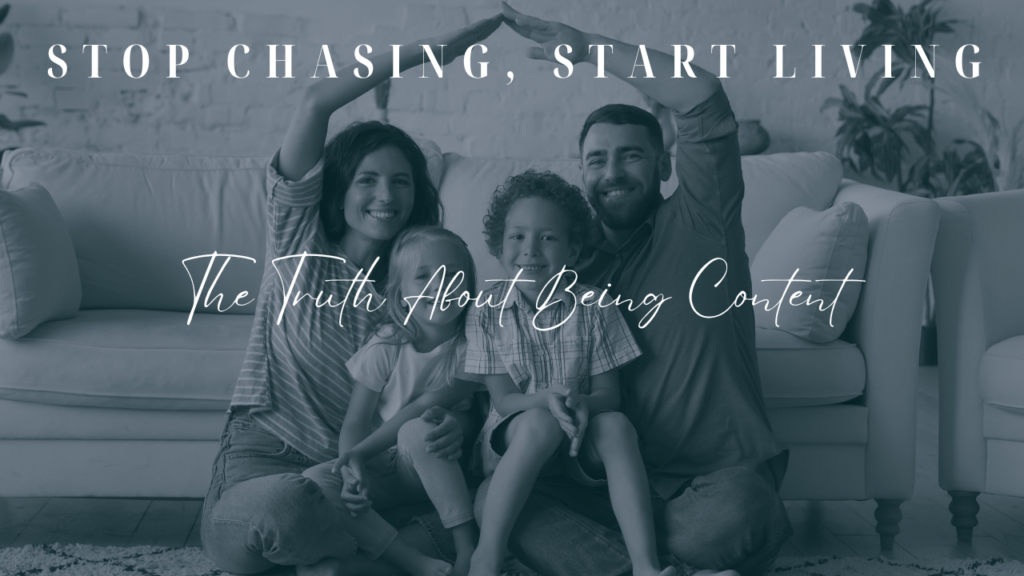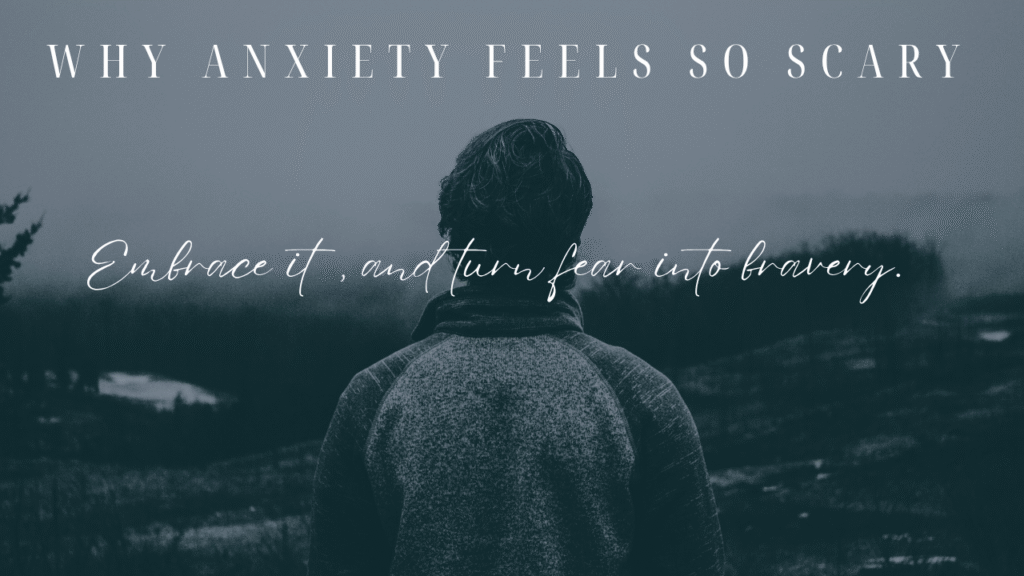There’s a kind of quiet exhaustion that builds when you spend your life chasing things that never quite deliver. It doesn’t happen all at once. It builds slowly, over years—layer by layer, year by year, goal after goal. At first, it feels like momentum, like progress. You’re achieving. Moving forward. Hitting your marks. Doing what everyone told you would make life meaningful. You work harder. Reach higher. Hustle more. You pour yourself into the grind because deep down, you believe it’ll be worth it. That the next thing—whatever it is—is finally going to make you feel full.
But then you get there. And the joy doesn’t last.
You hit the goal. You buy the thing. You post the win. You cross the finish line—and something still feels… off. Not quite empty, but not full either. More like a delayed disappointment that you didn’t see coming. So what do you do? You set a new goal. A bigger one. A shinier one. You chase again. Because what else is there?
But no matter how far you run or how much you gather, it never settles. It never satisfies for long. And the terrifying thought you start to feel, even if you won’t say it out loud, is this: what if I’m chasing the wrong thing?
You Don’t Need More—You Need Meaning
The chase is addictive because it feels like purpose. It gives your mind something to latch onto, something to push against. But the real trap isn’t the running—it’s the belief that running is what makes you valuable. That your identity is tied to your output. That your worth is proven through your performance. That if you just work a little harder, be a little better, do a little more—then you’ll finally be enough.
But that’s not life. That’s survival with a mask on.
There’s nothing wrong with setting goals. Ambition isn’t the enemy. But when your heart is running faster than your soul can keep up with, when rest feels like laziness and stillness feels like failure, that’s not drive—it’s dysfunction. And it will burn you out. It’ll rob you of presence, of peace, of people who actually want to know you—not the you that performs, but the one who just is.
You weren’t made to run your whole life chasing “someday.” You were made to live now.
Chasing Keeps You Distracted from What Actually Matters
You can spend your entire life building a version of success that everyone else claps for, and still miss the point. And the scary part? You won’t even notice it’s happening until something shakes you awake. A loss. A breakdown. A moment where all the striving hits a wall and you’re forced to sit in the silence you’ve been outrunning for years.
That silence is uncomfortable. Because it asks hard questions.
Who are you when you’re not chasing anything?
What’s left when the goals are stripped away?
Are you proud of the life you’re actually living—or just the image of it you’re selling to the world?
The answers aren’t always pretty. But they’re honest. And honesty is what creates space for something real to grow.
You Weren’t Meant to Earn Your Worth
One of the most exhausting things about the chase is the lie underneath it—that your worth is up for negotiation. That you have to earn love, acceptance, belonging. That if you don’t hustle hard enough, perform well enough, or prove yourself constantly, you’ll lose your place in the world.
But that’s not how God sees you.
He doesn’t love you more when you succeed. He doesn’t withdraw when you fail. He’s not pacing the heavens waiting for you to get your act together. He already knows. He already sees. And He’s not impressed by your highlight reel. He wants you.
Not your image. Not your potential. Not your productivity.
Just you.
Until that truth sinks in, you’ll keep running. You’ll keep striving. You’ll keep exhausting yourself trying to become someone you already are in Christ—loved, chosen, enough.
Not because of what you’ve done. But because of who He is.
Peace Starts Where the Chase Ends
When you stop chasing, you start noticing.
You start seeing the small things you missed while your head was down and your heart was in panic mode. You start paying attention to people again. To your own soul. To the quiet ways God has been showing up the whole time.
But that only happens when you slow down long enough to receive it. And that’s the hardest part. Because slowing down feels like quitting. Letting go of the chase feels like giving up.
But it’s not giving up.
It’s waking up.
To life.
To joy.
To peace that doesn’t come from performance.
To moments that actually matter—not because they’re impressive, but because they’re real.
You start living when you stop chasing what was never meant to satisfy in the first place.
What You Need Isn’t Out There—It’s Already Available
You think the next job will give you peace. The next relationship will heal the wound. The next goal will finally give you permission to rest. But what if peace doesn’t live in the next season? What if it’s here? What if all the striving is keeping you from the very thing your soul is begging for?
God’s not dangling rest in front of you like a carrot. He’s offering it now. In the middle of the chaos. In the tension. In the mess.
He’s not waiting for you to figure it all out. He’s not asking you to achieve your way into His arms.
He’s saying, “Come.”
Now. Not later.
Not when you’ve proven yourself.
Not when you’ve earned it.
Just now.
You can still work hard. Still dream. Still build. But do it from a place of rest, not a place of fear. From identity, not insecurity. From grace, not pressure.
When you stop chasing, you can finally breathe.
When you stop trying to earn what’s already yours, you can finally live.
Start Living Today
Not after the next milestone. Not when the plan works out. Not when everyone approves. Today.
Look around.
Talk to someone like you actually care.
Put the phone down.
Sit with God like He’s enough.
Say no to the thing you don’t have space for.
Let yourself laugh without worrying if you’ve “earned” it.
You don’t need more noise, more pressure, or more applause.
You need presence.
You need connection.
You need freedom from the lie that your life only matters when you’re achieving something impressive.
Start living.
Because this is it.
This is your life.
And it’s far too precious to waste chasing a version of success that’s killing your soul in the process.



